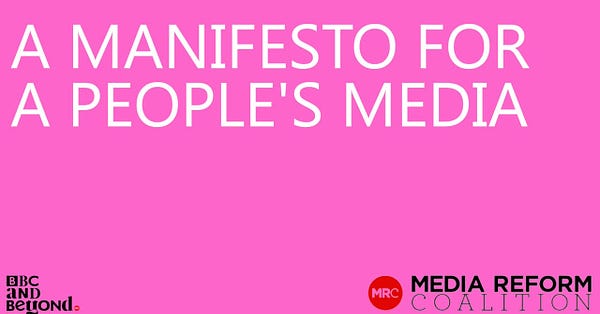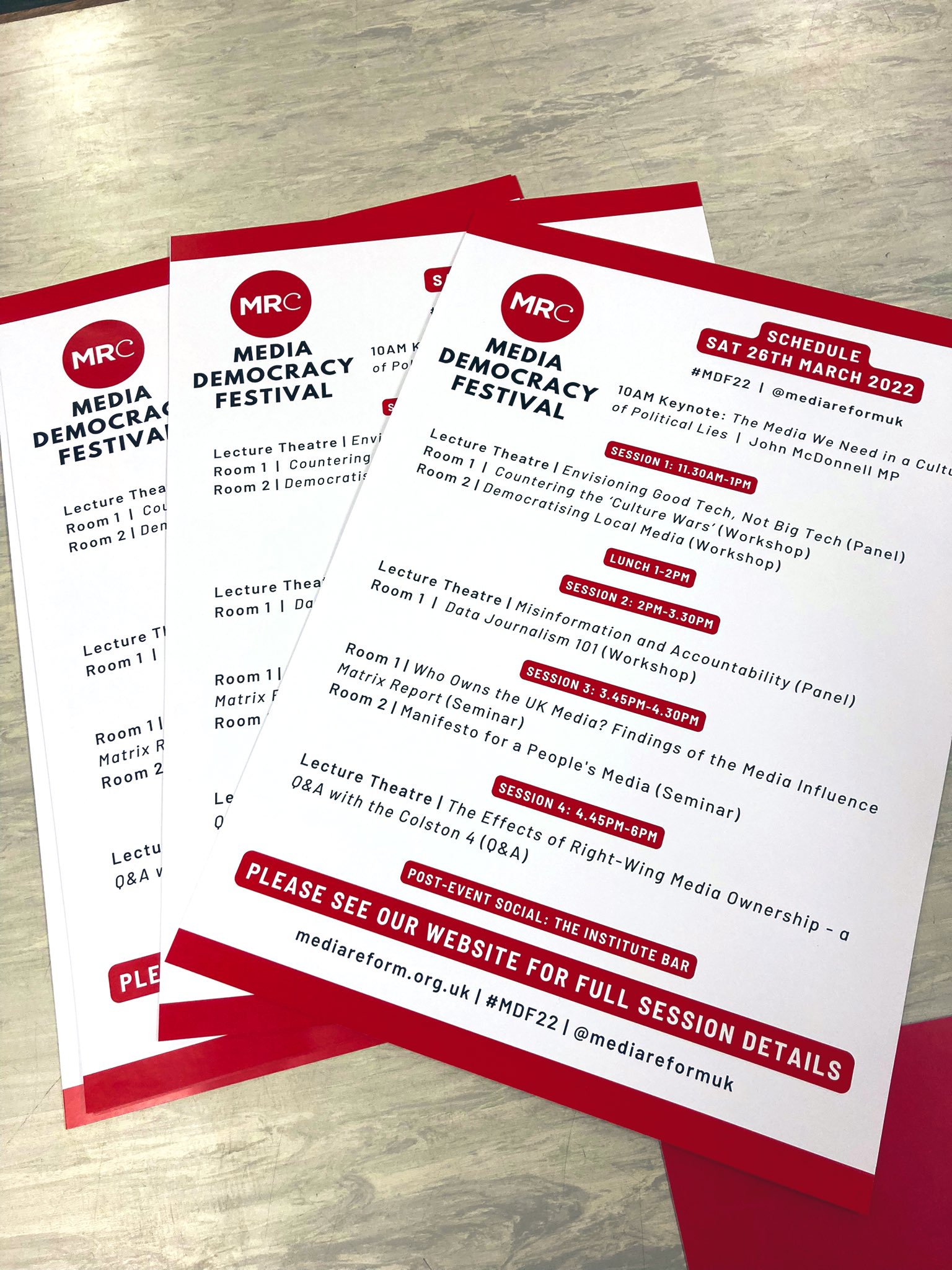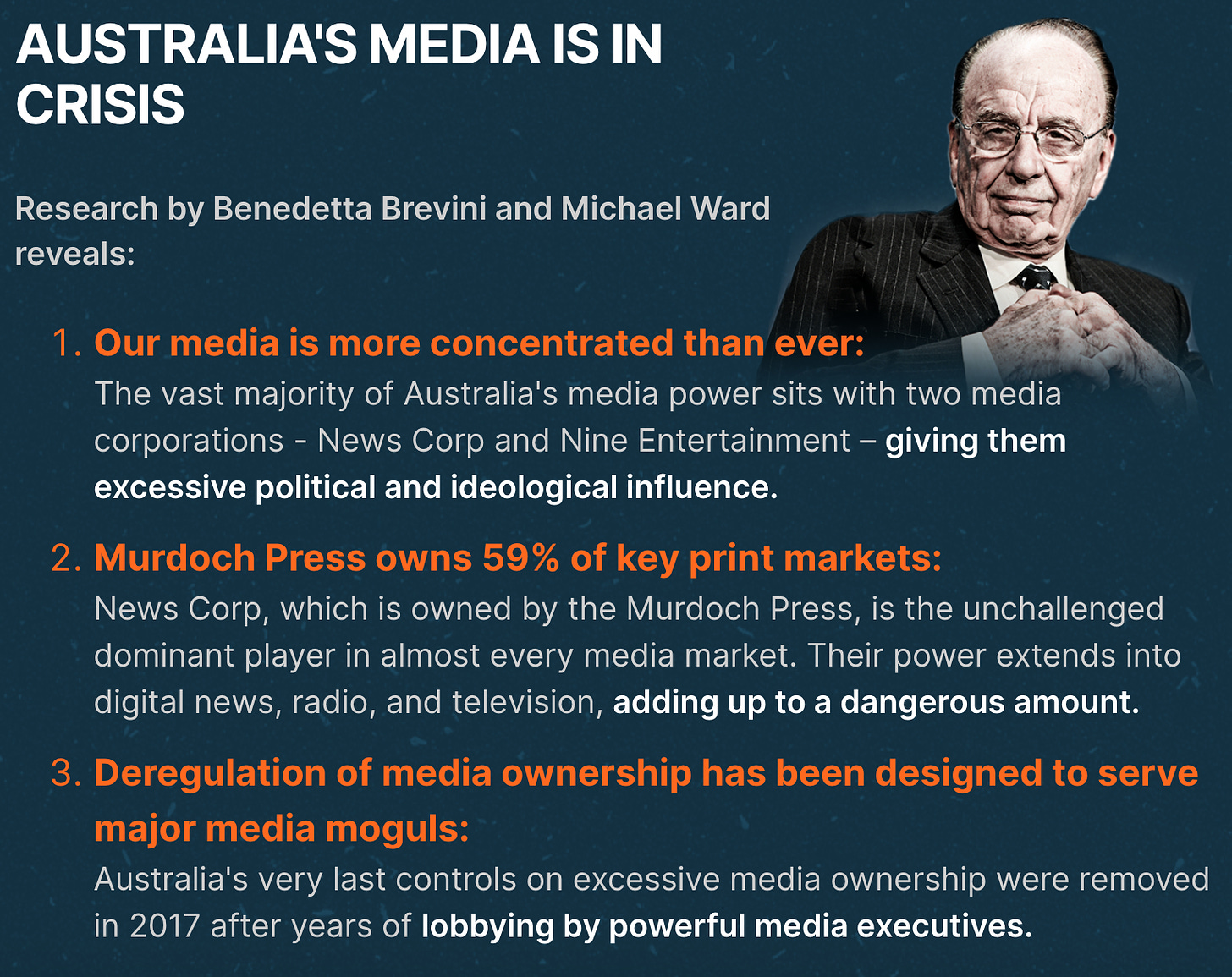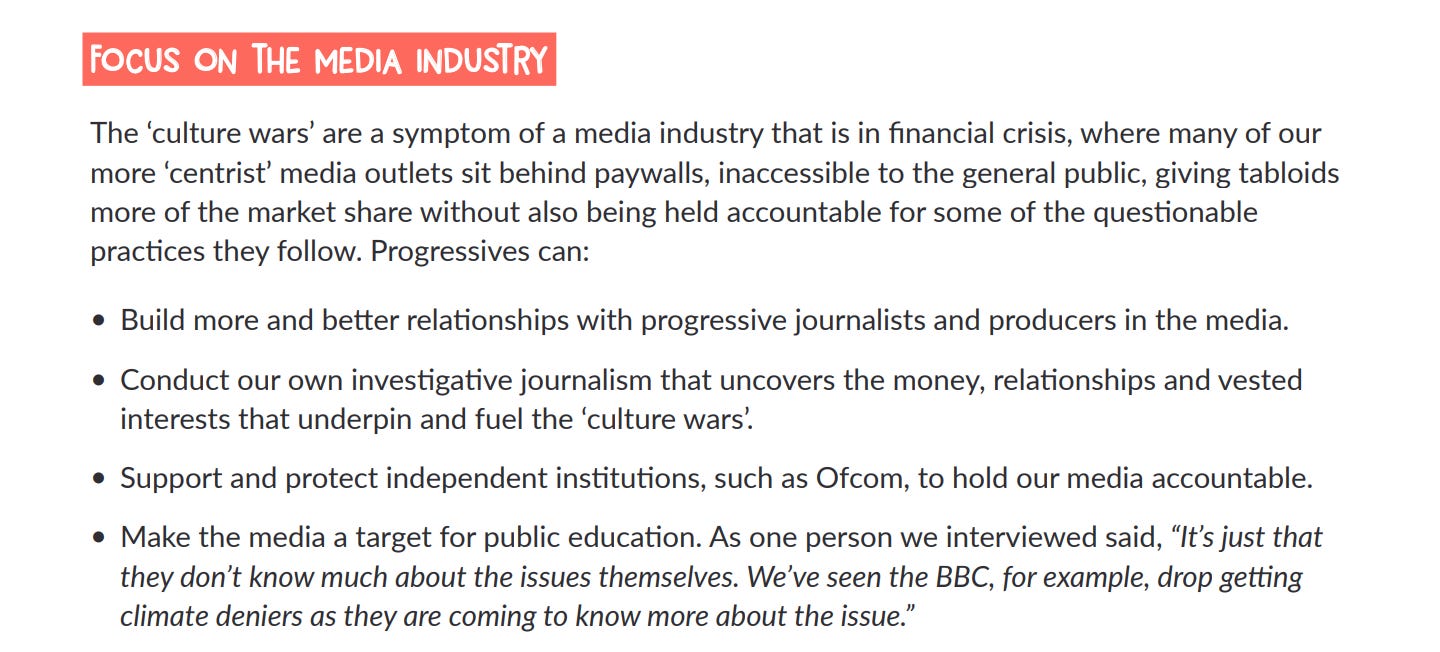By Eliz Mizon
#MDF22 was an uplifting, thought-provoking, and urgent gathering of some of the UK’s leading media experts and citizens who understand the need to revitalise the media, a system that underpins our ability to understand all others.
We kicked off with five days of international livestreamed panels, all of which are now available in a playlist:
For the first couple of days we were joined by our Australian colleagues, who got up very early to share their perspective with us in the UK. Monday’s Framing the Climate Emergency demonstrated the ways in which Australians – and the rest of the world – have suffered from a lack of urgency by the media to explain the effects of climate inaction.
The event was timely: Australia has again been hit by devastating floods. Guardian Australia economics correspondent Peter Hannam, one of Monday’s speakers, discussed climate change rolling on ‘in the background’ as the news cycle dips in and out of dedication to reporting increasingly extreme weather events – frequently missing them altogether.
This week has seen widespread bleaching of the Great Barrier Reef for the first time during La Niña, typically the cooler phase of the Pacific Ocean’s weather cycle, prompting fears about what will happen in the next El Niño phase. A few outlets, including the Guardian, have picked this up but otherwise it’s barely registered.
Peter told us:
“…climate change can be a difficult thing for the media to keep in focus when there are so many other, apparently, more pressing matters. Even if you were to remove the structural obstacles to accurate reporting – in part I’m referring to the media empire tht Rupert Murdoch has established, and apologies for exporting Rupert to the world – it can be a challenge to keep global warming in the news.
As one climate scientist, who runs a research centre dealing with climate extremes, was reminding me just the other day… every weather event is affected by what we’ve done.”
It is a journalist’s job to join the dots. But journalists also have the job of reporting on what is working.
He shared a story about the residents of a town organising their own rescue missions during the floods, using shared spreadsheets to locate and track families who were missing and if/when they’d been rescued.
Effects of the ‘Murdochracy’ were addressed in further detail in Tuesday’s What Does Media Concentration Do to a Country?
We were joined by Senator Sarah Hanson-Young, the inquiry’s chair; Michael Ward, a former exec at ABC television; Tosca Lloyd, a senior campaigner at GetUp, the biggest progressive campaign group in the country; and Bene Brevini, a journalist and academic who worked alongside Michael and GetUp to produce the first comprehensive research report into Australia’s media power structure.
Both the GetUp report and the government inquiry found that Murdoch controls the majority of Australia’s media industry (including 60% of its newspaper market), and just two other companies control almost all of the rest. The movement in Australia, which mirrors our own, is ongoing.
This led nicely into the UK-focused sessions; on Wednesday MRC’s researcher for the BBC and Beyond project, Debs Grayson, led a session on the concept of Creating a Media Commons.
In a media commons, our media would be funded through significant public resources, and managed collectively so they serve our needs and help us face the challenges ahead. More on how it might work can be found in the BBC and Beyond podcast.
In the last half of the week, I led a session on Strengthening UK Media Unions, featuring reps from the NUJ, BECTU and the NY Newsguild; we joined with CAMRI on the third of their PWR Workshops, a 40th anniversary retrospective of the publication of James Curran and Jean Seaton’s Power Without Responsibility; and held two more sessions that followed on from the BBC and Beyond project: Creating a People’s BBC and Creating a People’s Channel 4.
Which brings us up to Saturday at Birkbeck, in central London.
Saturday’s sessions were kicked off by John McDonnell MP, a leader in the left-wing of the Labour party and the former shadow chancellor. He announced he had been following the festival throughout the week and considered it “a crucial event in the fight for the future of UK democracy”. (Nice to hear from one of the country’s leading politicians.)
MRC chair Tom Mills noted in his opening address:
“…the media is not separate from the structures and networks of class power, they are an integral part of it.
The point is that any movement to change society cannot ignore the question of media power. For one thing, if you have any realistic prospect of success the media power structure will no longer ignore you. As John of course experienced first-hand.”
Numerous panels, workshops and seminars followed including an introduction to data journalism by WSJ’s Caitlin Ostroff, who kindly shared her slides with us in perpetuity. (I urge all progressive and campaigning journalists to recognise the importance of visual tools in storytelling, and use Caitlin’s expertise!)
Hanna Thomas Uose from Align showed us how to counter ‘culture wars’ narratives. She shared what she learned when putting together the ‘Divide and Rule’ report for NEON, looking at the tactics that conservative commentators and institutions employ, the tactics that progressives can use in order to engage more effectively, and the wider strategies needed to support an end to the ‘culture wars’.
We also heard from decolonial internet researcher Henna Zamurd-Butt, author of Platform Socialism James Muldoon, and proponent of the British Digital Cooperative Dan Hind, about ‘Envisioning Good Tech, Not Big Tech’.
Henna pointed out that the internet, first a military project and then a capitalistic one, is based on the colonial project even down to its physical infrastructure. If you look at the telecommunications routing of the British Empire, and the internet’s undersea cabling, the maps are largely the same.
When we consider who has access to the internet, who controls internet infrastructure, even who the most prolific Wikipedia editors are, it continues to display the domineering, patriarchal, Caucasian structures of empire. Watch out for future publications of Henna’s research.
James and Dan spoke about what reformulations of the UK’s technological political economy might look like – not unlike the ideas around media commons in conversations earlier that week.

We need media which is owned by us, accountable to us, where we all get to play a part in creating it: we need to build a media commons. #independentmedia #BBCandBeyond What would this look like? WATCH BELOW… 
As Natalie said in her closing speech: now that the festival is over, the work begins again for the year. We need people to join us in action.
The primary activities of the Media Reform Coalition is to produce research for policymakers, and take actions based on this research (such as putting on events at an annual festival) that foster a change in the culture.
But we can’t build that movement without you. Here’s what you can do:
- Read the (very accessible) manifesto to understand the issues
- Write to your MP (especially near the next election) and ask them to act on media reform issues
- Subscribe to the MRC and Chompsky mailing lists to be kept upt to date with media news and campaigns you can contribute to.
This post was first published by Eliz here at her Chompsky: Power and Pop Culture blog.





